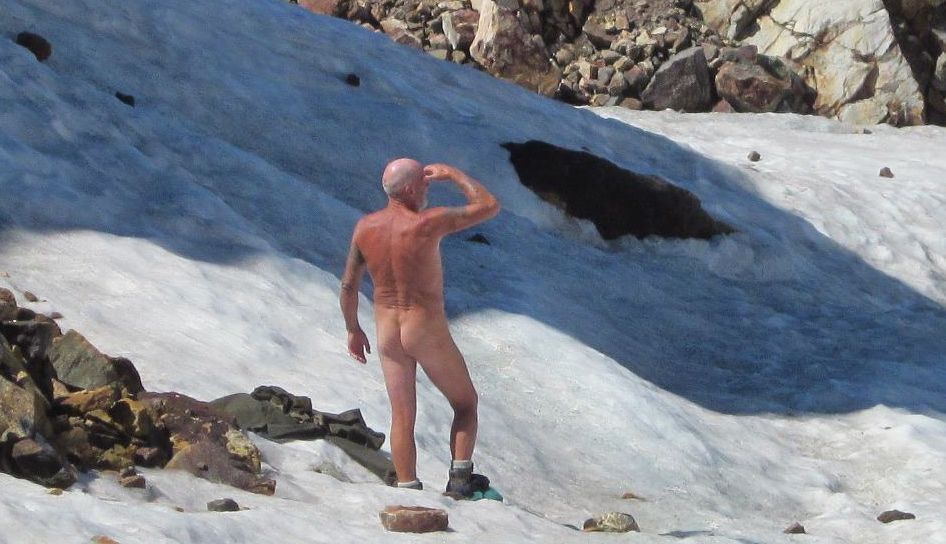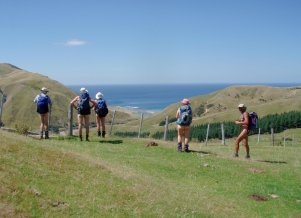Do you have questions about naturism and the naturist lifestyle? You might find the answers below...
INF-FNI Definition:
"Naturism is a way of life in harmony with nature, expressed through social nudity, linked to self-respect, tolerance of differing views together with respect for the environment".
Naturism is the practice of going nude, especially in a mixed social setting and is a lifestyle choice. Another term for it is 'nude recreation'. It is a feeling of freedom and, for many, social nudity is personally liberating. Through it, we come not only to accept ourselves but others as well.
Self-esteem is greatly enhanced in the nudist lifestyle - our own self-esteem increases when we accept ourselves for who we really are. Nudists respect each person's individuality and easily accept others for who they are rather than what they might be wearing. Some people say that when they shed their clothes, they also shed the stress and entrapments of their busy lives.
No difference really. Some places around the world use the word nudist and others use naturist. The words can also relate to two different philosophies which have nudity in common. Naturists can be defined as having a broader philosophy which encompasses a more holistic approach to being naked. In contrast, a nudist is a person who just likes to be naked.
Broadly speaking, anyone who practices nude recreation, social nudity, or both. There are millions of naturists worldwide. No longer confined to small, secretive enclaves, today’s naturists have a variety of recreational and social outlets, whether it be in clubs, saunas or at the beach. There are naturists from all professions and occupations. Naturists are a cross-section of society. Some are young, some are older. Some are married, some are not. Some have strong religious beliefs whilst others have none. Naturism is a great equaliser.
When naturists talk about "social nudity" and "nude recreation" they mean just that—naked group social activities. At a club, many play sport, including volleyball, petanque, tenniquoits or the naturists’ version of tennis – miniten. Others mow the lawn around their campsite or cabin, do the housework or just relax with a good book. For the more adventurous, there are nude hiking, kayaking, and scuba diving — even skydiving. Most things that can be done clothed can be done unclothed—and usually it’s a lot more enjoyable.
Nude recreation embraces the pure joy of living - to relax and be nude is to let yourself be totally free. Nude recreation is a great way of getting back to basics - experiencing and appreciating nature in the most natural way possible - and totally unwinding. Relaxation, stress relief, positive body image, and increasing self-esteem are just a few of the reasons people choose the nudist lifestyle.
It is hard to believe that some people do find something as natural as a naked body offensive. It is probably more embarrassment that they are experiencing. But the philosophy of naturism is not to offend.
In New Zealand, it is legal to be naked in appropriate public places, such as beaches. It is not the lack of clothes that is the issue but the behaviour that goes with it. Nonetheless, while laws that specifically prohibit nudity and equate it with "indecent exposure" are rare, that should not be taken as an invitation to get naked "anytime, anyplace." In general, commonsense should prevail, and in most situations, a sharp distinction is obvious between lewd behaviour and simple nudity, such as sunbathing and skinny-dipping.
Free beaches are public areas which have become nude through use by naturists, and thus do not require membership. Clubs are private grounds which are owned by the members and therefore have their own rules. Most clubs will allow you two or three visits before you need to decide whether to join or not. Once you belong to a club, you are given an International Naturist Federation membership card, which allows you to visit any club worldwide. As clubs are owned by their members, it is common etiquette that you phone before visiting and pay any fees.
Fewer rules
Less expensive
Bigger range of people (not all known to everyone)
Clothing optional
Sand in the volleyball court!
Members screened, so a safer environment
Regular members who make it easier to make lasting friendships
Clubhouses, pools, spas, and other amenities
No sand to get into everything
Indoor spaces when the weather gets bad
Social activities
In New Zealand, there is Free Beaches NZ Inc., which is affiliated to the NZNF and protects the rights of people who use public beaches for the practise of naturism. Also, there are a group of naturists called NZ Nudvan Club who enjoy travelling the country with their campervans, caravans or tents, visiting different places. Once a month they get together to hold a rally. There are two commercial naturist parks which have all the facilities of a regular camping ground, plus a number of naturist homestays, which are private homes owned by naturists. These offer bed and breakfast, on-site vans or camping and are a good way of easing into naturism. The owners can answer all your questions and being a more private setting, it is a good place to start if you are not sure about the naturist lifestyle. If you are not sure about joining a club just yet, then you should consider becoming a member of the New Zealand Naturists. This is a good way to find out about the naturist lifestyle and clubs in your area, which one day you might like to belong to.
Of course not, but a lot of people say the naturist experience is greatly enhanced by joining a club. Whether you skinny-dip, go to clothing-optional beachs, or just lie naked in the sun in your back yard - you are living the 'natural style of life' - naturism.
An exhibitionist will expose their body to shock others or seek attention. Naturists do not agree with this type of behaviour. An exhibitionist will soon lose interest at a naturist club as the “Wow – look at me” factor is non-existent. Naturists just enjoy being nude.
Certainly not. When the weather is bad, or you are performing some task where clothing is required for protection, or you are getting sunburnt, it is perfectly normal and sensible to wear something. We all have different tolerances to heat and cold. Naturists go without clothes when it is sensible to do so, e.g. when swimming, playing sport, or just relaxing. Women when menstruating often wear shorts or a sarong and can do so without any problem.
Wrong! The public have a misconception that nakedness must be sexual as most people only undress to take a shower or have sex. But naturists know there are other situations (i.e. normal daily life) where you can be naked and feel good without it being sexual. Naturists are not against sexuality but agree that there are appropriate times and places to experience it. A totally naked body is less sexual than a person wearing a skimpy bikini or G-string and people will always find others attractive, whether they are dressed or not.
Perhaps the best way to become a naturist is with the help of a friend or spouse who is a naturist. Another option is to contact a naturist venue near you from this web page and arrange for a visit (see
Locations & Events). All naturist organisations welcome new members and do their best to ease them comfortably into the world of naturism. You don’t have to take your clothes off right away – do it gradually if you prefer. Or, if it simply doesn’t feel right, just leave. You can always come back and try again. But remember: if you go to a clothing-optional beach and remain clothed for too long, people might start thinking you are there for the wrong reasons.
Most clubs have a number of single members. But to maintain a balance of gender, all clubs have various rules about their membership demographics, so you should contact the appropriate club to find out their stance on this.
The same things you would take when going to the beach (except a bathing suit)! Also some warm clothes (in case of a change in the weather) and of course an open mind. And a towel to sit on, if you do strip off.
The same rules apply in the naturist environment as in the clothed environment. Always respect the rights of others. When visiting a club, as when visiting other's homes, respect their rules.
• Always carry a towel with you to sit on.
• Don’t stare at others. When talking to others, act just as you would if they were dressed.
• Don’t engage in overt sexual activity.
• Many clubs do not allow cameras or camera cell phones, so check out their rules before visiting. Always ask the permission of subjects in the photo BEFORE taking the snap.
• Get dressed when leaving the club. Naturists are not trying to offend anyone.
• Respect people’s property.
• Respect people’s privacy. Many people go to their club to relax. Be friendly but not overbearing.
• Report any misconduct to a member of the club committee.
For more information, go to our
Benefits of Naturism page.










